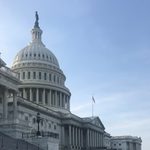
As of July 3, 2025, the Criminal Justice Act (CJA) program has run out of funds for the current fiscal year, threatening the quality and availability of federal defense counsel for the overwhelming majority of criminal defendants who cannot afford to hire their own lawyers. The budget Congress approved for the CJA program in March is $129 million less than what was requested by the Federal Judiciary. As a consequence, CJA appointed defense teams have been denied payment for their work since July 3, 2025. Unless Congress provides supplemental funding, the earliest CJA court-appointed attorneys and support staff, such as paralegals, interpreters, and investigators, will receive payment is October 1, 2025, at the start of the 2026 fiscal year.
“The criminal justice system is really a three-legged stool — you’ve got the prosecution, the court and the defense. It doesn’t work without all three of us. Cases cannot get processed from arrest, prosecution to conviction without all three of us, so the system will absolutely break down.”
For the 2026 fiscal year, the Federal Judiciary is seeking $1.77 billion for Defender Services, which includes $116 million to cover missed payments incurred in the 2025 fiscal year. An extra $12 million is sought in anticipation of the increased caseload created by President Trump’s directive that DOJ “shall” seek new federal death sentences “where possible.” If, however, Congress decides to once again keep funding levels flat, or provide an inadequate increase, then a similar shortfall would be expected to occur even earlier in the subsequent fiscal year. House Republicans proposed a budget of $1.6 billion for the 2026 fiscal year that would fall short of the Judiciary’s request. According to a July 25 internal memo by Judge Robert Conrad, Director of the Administrative Office of the U.S. Courts, the shortfall would again halt CJA payments as of June 11, 2026, resulting in the “longest deferral in the history of the program.” Judge Conrad also warned that federal public defenders would be forced to eliminate at least 600 positions under this proposed budget. “Reductions of this magnitude would inhibit the Defender Services program from meeting its constitutionally mandated mission,” he wrote.
These potentially catastrophic consequences were not unexpected. Following passage of the Continuing Resolution in March, Judge Conrad and chair of the Conference’s Budget Committee Judge Amy J. St. Eve warned of the expected adverse impact on the Defender Services program in a letter to House and Senate Appropriations Committees on April 10, 2025. The letter explained that months long delays in payment could deter attorneys from accepting CJA work, “potentially creating unlawful delays in the constitutional right of defendants to a speedy and fair trial,” and would “substantially increase” the Judiciary’s funding for the subsequent fiscal year.
According to a United States Court press release, over 90% of defendants in federal criminal cases are unable to afford to hire their own counsel. About 60% of those cases are handled by federal defenders, while the remaining 40% are assigned to private attorneys through the CJA. Annually, about 12,000 private attorneys are appointed through the CJA, 85% of whom are solo practitioners or with small firms who will face serious financial hardship without being compensated for their work. Ripple effects from funding delays are already being seen with some attorneys refusing to accept CJA appointments, according to Source NM, and others requesting additional time for their cases. In New Mexico, which has seen an influx in prosecutions as a result of arrests in the newly established buffer zone along the border, some attorneys have petitioned the court to postpone their trials and remove all pending deadlines, explaining that “defendants are currently prevented from utilizing the basic tools necessary to formulate their defenses due to failures of the legislature to ensure appropriate necessary funding to appointed counsel nationwide.” Characterizing the budget shortfall as an “intentional act” by Congress to “deprive the judiciary of necessary funds to ensure Defender Services … operate in a constitutionally appropriate manner,” the motion cautions of a “dangerous competition between defendants’ constitutional rights.”
During the 2013 sequestration, similar budget issues affected federal defender services, according to the United States Court Annual Report in 2013. After cutting the program’s budget by $52 million, about 400 jobs were eliminated during the 2013 fiscal year and 20,600 furlough days were imposed. Additionally, $15.8 million in payments to CJA attorneys were deferred from September 17, 2013 through the end of the fiscal year.
Melissa Quinn, Defense lawyers for needy clients feel squeeze after congressional funding dries up, CBS News, August 11, 2025; Suzanne Moynak, Top Court Official Projects Hundreds of Defender Job Cuts, Bloomberg News, July 30, 2025; Funding Crisis Leaves Defense Lawyers Working Without Pay, United States Court, July 15, 2025; Austin Fischer, Some New Mexico attorneys stop taking public defense work due to ‘funding crisis’, SourceNM, July 17, 2025; Suzanne Moynak, Defense Lawyers Face Months Without Pay as Federal Funds Dry Up, Bloomberg, June 2, 2025; Sequestration’s Impact on Judiciary’s Programs and Operations — Annual Report 2013, United States Court, 2013;



